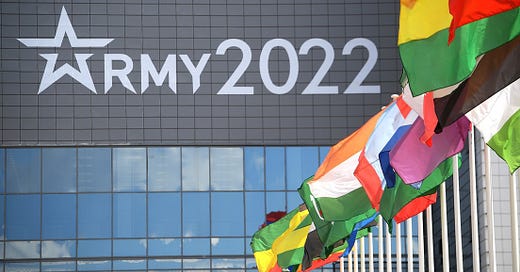The Tenth Moscow Conference on International Security, an annual event, was held on August 16-17, 2022. More than seventy countries participated, including China and Vietnam, in the conference hosted by the Russian ministry of defense.
The conference is an indication of the level of support in the world, in the military terrain as well as the economic, for the development of a multipolar world-system with regional centers of political-economic influence, leaving behind a world-economy and world-system dominated by the USA and Western imperialist nations.



